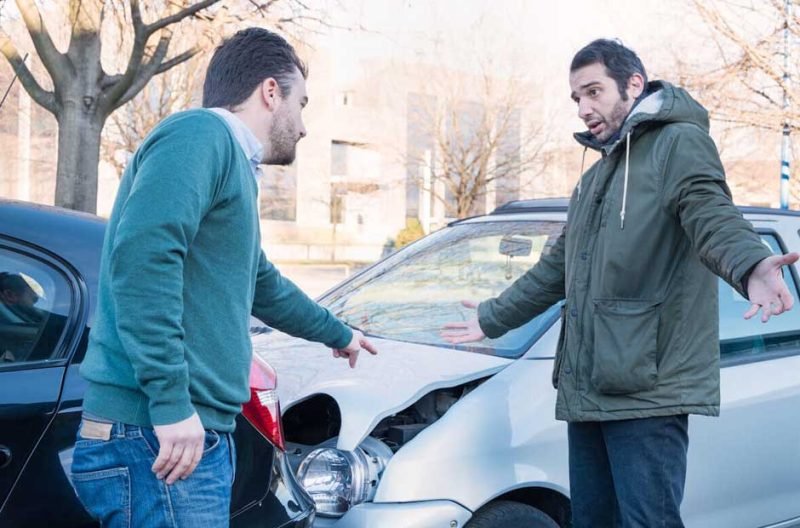
Traveling to different countries is a fun and exciting experience, allowing you to learn different cultures, taste diverse cuisines, and create lasting memories. However, there may be unexpected challenges that could potentially make the trip complicated, such as being involved in a car accident overseas. Dealing with such an unfortunate event in a foreign place can be terrifying and confusing, but knowing what to do ahead of time can help you navigate the situation more effectively.
Exploring the Legal and Medical Aspects
When facing a car accident in a different country, it is important to understand the legal and medical aspects involved. Familiarize yourself with the country’s local traffic laws and regulations to understand your rights in the country where the accident occurred. Additionally, seek immediate medical attention for yourself and others involved in the accident. Make sure you are aware of the local emergency services and contact them as soon as possible.
Acting swiftly in the aftermath is crucial. Report the accident to the local police or appropriate authorities and obtain a copy of the police report. This document may be necessary for insurance and legal purposes. It’s also essential to inform your embassy or consulate about the accident. They can provide guidance and assistance in navigating the local legal system and help you contact your family or friends back home.
Documenting the Accident
Documenting the accident properly is vital for insurance claims and legal proceedings. Take photos and videos of the accident scene, including the damages to vehicles and any visible injuries. These pieces of evidence can be valuable in supporting your case. Exchange contact details with the other party involved in the accident, such as their name, phone number, and insurance information.
Prioritizing Your Health
Seeking medical assistance should be a priority, even if you believe your injuries are minor. Visit a local hospital or clinic to undergo medical evaluation and ensure there are no hidden complications. It’s important to request copies of all medical records and receipts related to your treatment. These documents will be useful for insurance claims and potential legal action.
Navigating the Claims Process
Contacting your insurance company promptly is crucial for navigating the claims process. Report the accident to your insurance provider as soon as possible, providing them with all the necessary details and documentation. Take the time to familiarize yourself with the terms and conditions of your insurance policy, including any limitations or exclusions that may apply to accidents overseas.
If your insurance company does not offer coverage for car accidents overseas, there are a few steps you can take. First, explore travel insurance options that specifically cover accidents and medical expenses abroad. Consult with an international insurance specialist to find suitable coverage. Consider reaching out to local insurance providers in the country where the accident occurred. Discuss the situation with your embassy or consulate for guidance and support. Lastly, document all aspects of the accident for insurance claims or potential legal proceedings. Being prepared and proactive is essential when dealing with a car accident overseas without insurance coverage.
Seeking Legal Advice
In some cases, seeking legal advice may be necessary, especially if the accident involves significant damages or injuries. Consulting a personal injury attorney can provide you with the guidance you need. It’s also important to research the legal procedures and time limitations for filing claims or lawsuits in the country where the accident occurred.
Dealing with Language Barriers
Language barriers can add an extra layer of complexity to dealing with a car accident overseas. To overcome communication challenges, utilize translation apps or hire an interpreter to help you effectively communicate with local authorities, medical personnel, and insurance representatives. Learning and carrying basic phrases in the local language can also be helpful in critical situations.
Handling Financial Complications
Managing the financial complications that arise from a car accident overseas is essential. Keep track of all expenses related to the accident, including medical bills, transportation costs, accommodation expenses, and vehicle repairs. Work closely with your insurance company to understand what expenses are covered and how to file for reimbursement or compensation.
In conclusion, experiencing a car accident overseas can be a stressful and disorienting situation. However, by understanding the legal, medical, and practical aspects involved, you can navigate through the aftermath more effectively. Remember to act swiftly by contacting local authorities and emergency services, document the accident properly, seek medical assistance, and contact your insurance company. In case of significant damages or injuries, seeking legal advice may be necessary. Overcoming language barriers and managing financial considerations are also crucial. And last but not least, seek emotional support from your loved ones and professionals to cope with the psychological impact. With proper knowledge and preparation, you can handle a car accident overseas while still enjoying your travel experience to the fullest.

